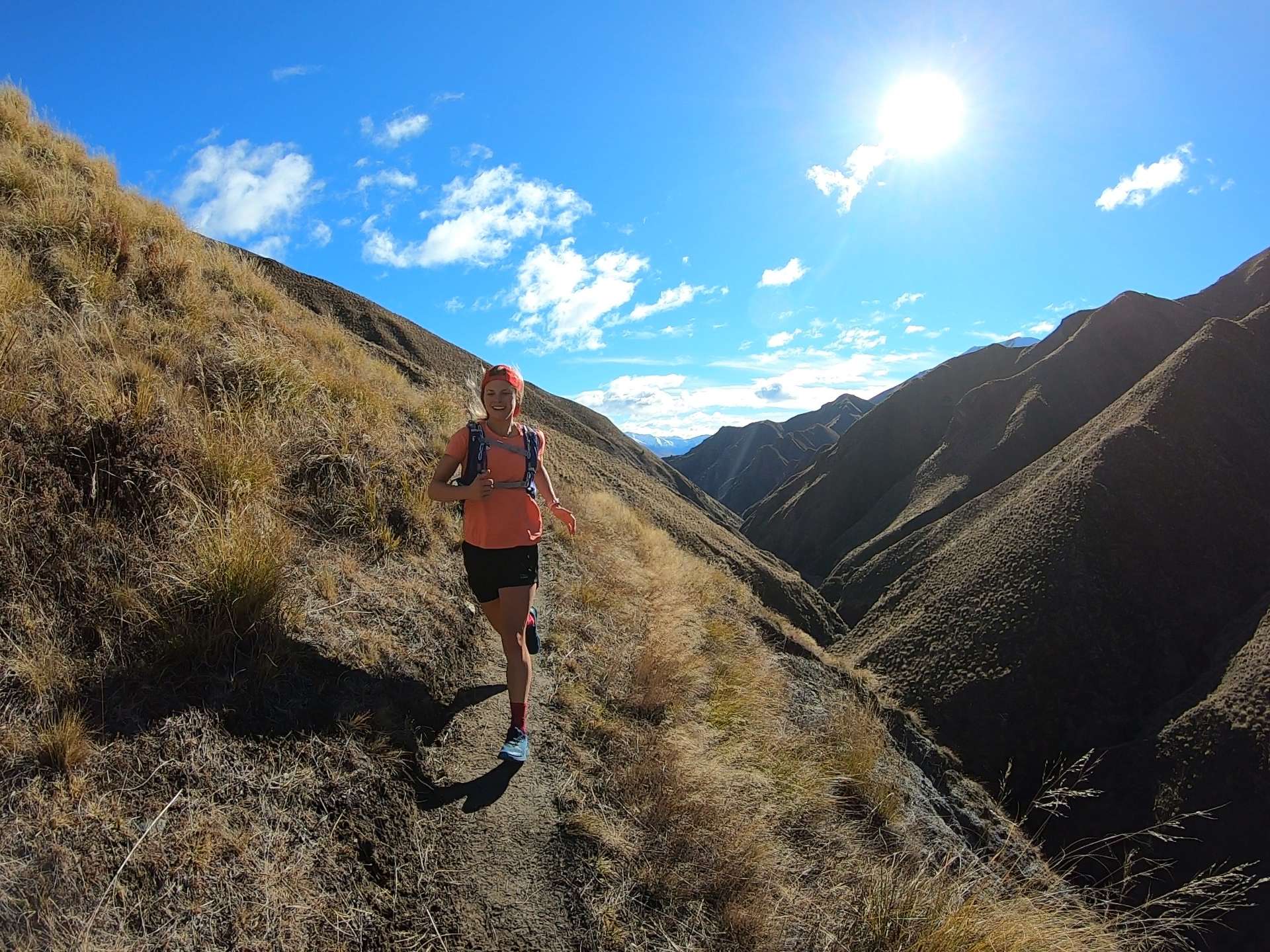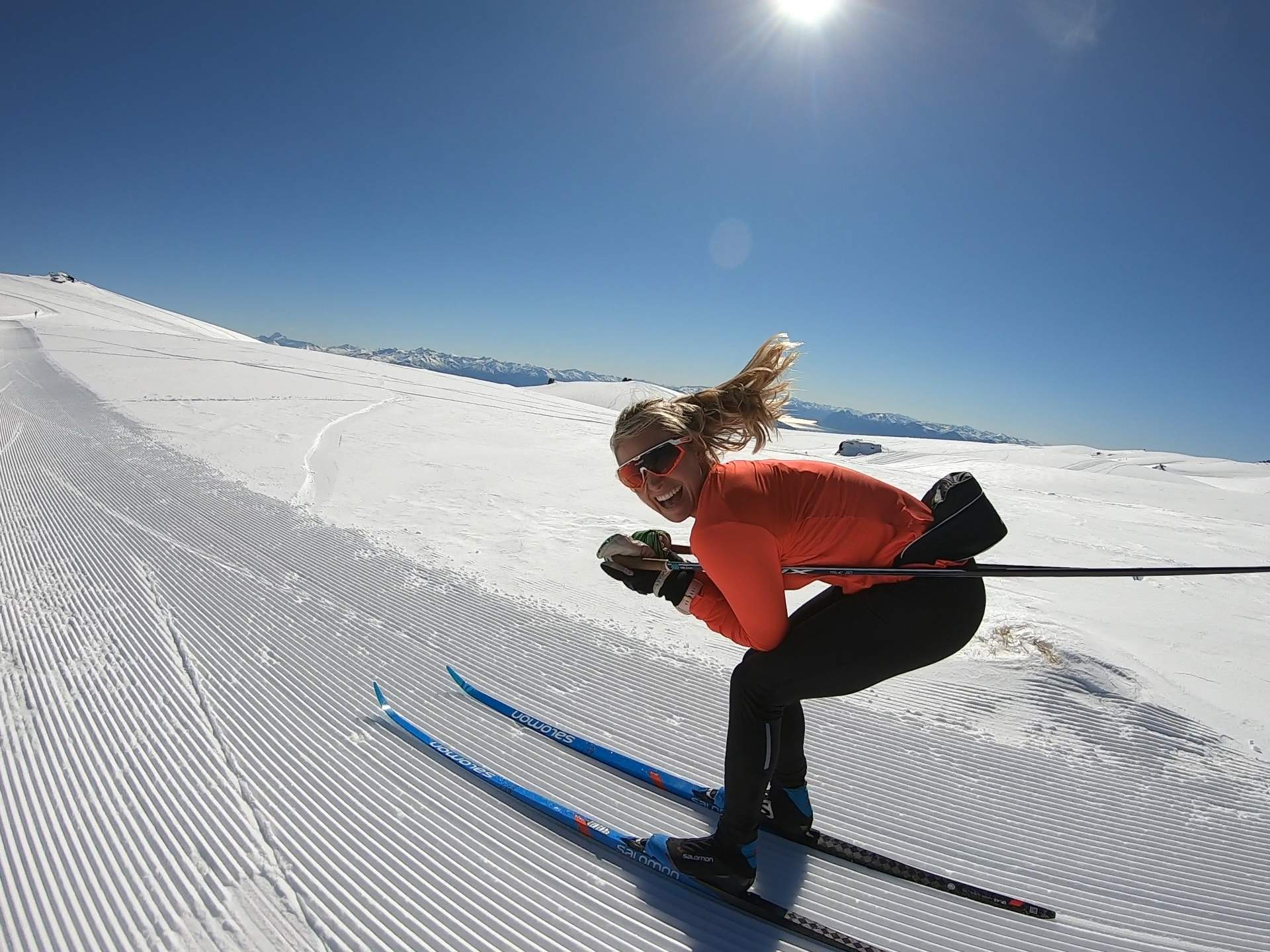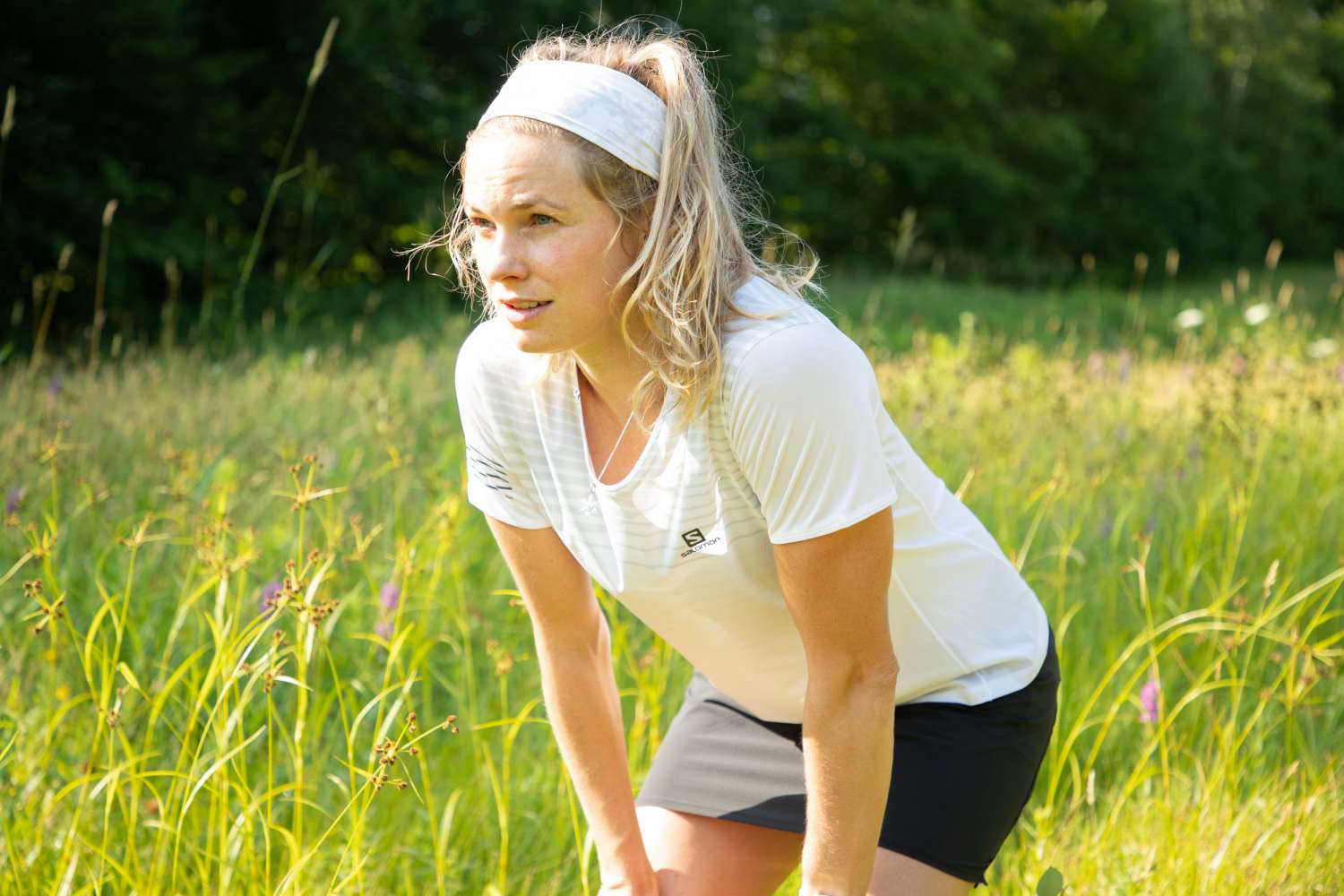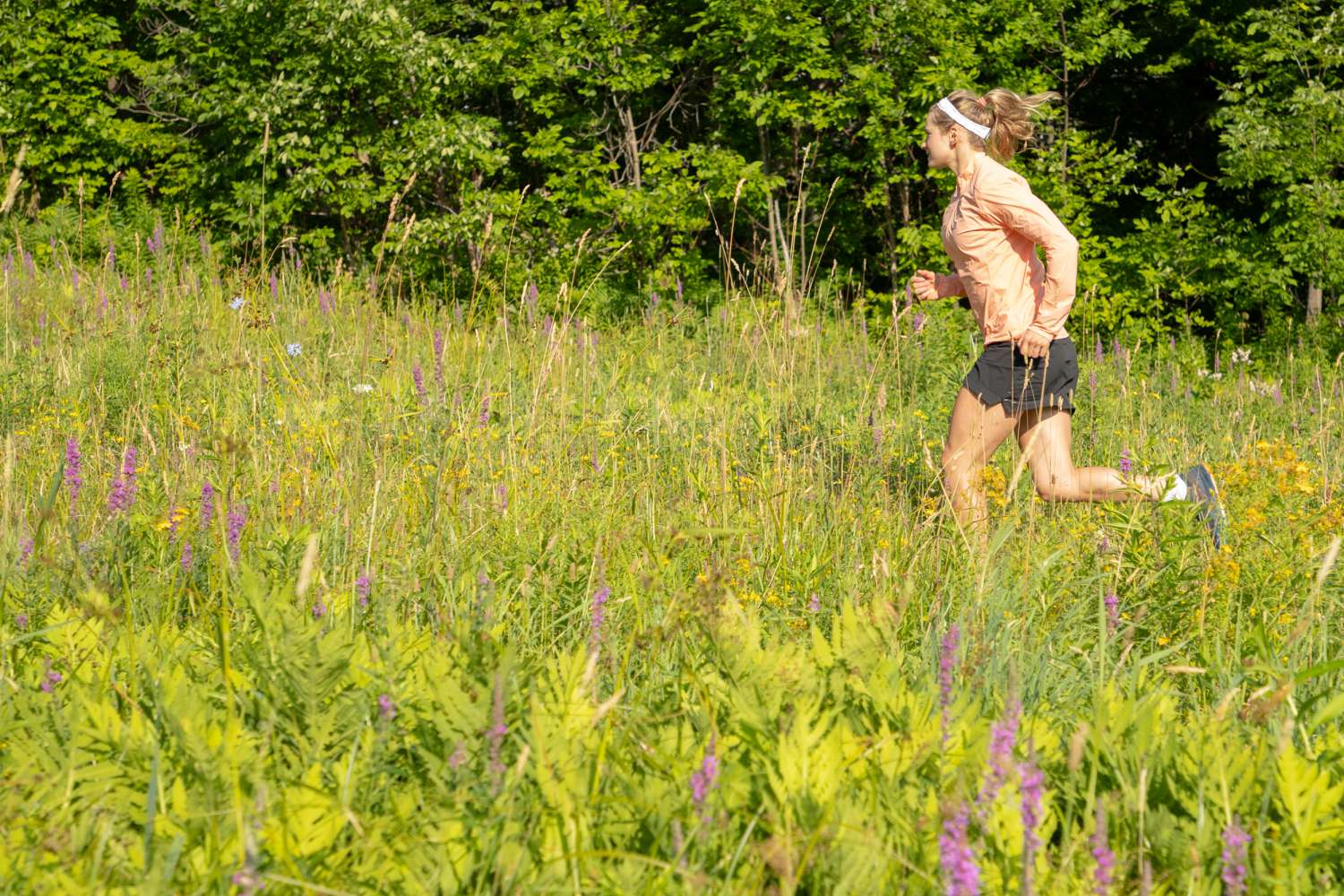Jessie Diggins
Jessie Diggins interview: “The worst thing we as humans can do is nothing at all.”
Team USA’s first ever Olympic Cross Country Skiing champion Jessie Diggins talks to us about climate change, her first-hand experience of a warming planet, and what we can do about it.
“Sometimes people can feel hopeless, so it’s easier to pretend that it’s not happening, or that it’s not our fault or responsibility to take action.”
By Paul McGee, Head Feature Writer. November 6 2019
“You don’t have to be a perfect environmentalist to find ways to help,” Jessie Diggins reassures me.
Her words come as something of a tonic to the conscience, because lately mine has been in a quandary: in the past year I’ve adopted a plant-based diet, protested against climate change, flown more than half way around the world on jet airliners, reduced my single-use plastic consumption, tinkered with and lovingly nurtured my fossil-fuel-burning car. See the rub?
“We experienced rain and puddles of melting snow while skiing on the Arctic Circle in Northern Finland”
In 2018 Jessie Diggins, alongside teammate Kikkan Randall, won USA’s first Olympic gold at cross country skiing. I want to know about her upbringing on the trails of Minnesota and her unprecedented sporting achievements. But I also want to get to grips with a much bigger agenda. One that’s very close to her heart.
Because if there’s one acumen Jessie Diggins possesses to equal her prowess as Olympic Champion, it’s a capacity to see the big picture. Right from her formative years, the history-making athlete from Minnesota has been all too aware of her changing natural environment.
“I’ve always known that climate change was a threat,” Jessie tells me, “but seeing winters change in my home state of Minnesota from dependable, cold snowy winters to racing on man-made snow my last few years of high school was a real, tangible effect. When I started traveling the world and racing the World Cup circuit, I saw the same thing happening around the globe. Mountain towns whose economies depend on the snow they regularly receive were surrounded by green grass and mud in January. We experienced rain and puddles of melting snow while skiing on the Arctic Circle in Northern Finland.
“What concerns me the most is not just that we might lose our beautiful, incredible winters for the next generation, but that we’re going to lose our planet as a liveable place as well. If climate change deniers aren’t concerned enough by this, they should also consider the economy; entire towns that depend on winter tourism will no longer have this as a resource.”
“You don’t have to be a perfect environmentalist to find ways to help,” Jessie Diggins reassures me.
Her words come as something of a tonic to the conscience, because lately mine has been in a quandary: in the past year I’ve adopted a plant-based diet, protested against climate change, flown more than half way around the world on jet airliners, reduced my single-use plastic consumption, tinkered with and lovingly nurtured my fossil-fuel-burning car. See the rub?
“We experienced rain and puddles of melting snow while skiing on the Arctic Circle in Northern Finland”
In 2018 Jessie Diggins, alongside teammate Kikkan Randall, won USA’s first Olympic gold at cross country skiing. I want to know about her upbringing on the trails of Minnesota and her unprecedented sporting achievements. But I also want to get to grips with a much bigger agenda. One that’s very close to her heart.
Because if there’s one acumen Jessie Diggins possesses to equal her prowess as Olympic Champion, it’s a capacity to see the big picture. Right from her formative years, the history-making athlete from Minnesota has been all too aware of her changing natural environment.
“I’ve always known that climate change was a threat,” Jessie tells me, “but seeing winters change in my home state of Minnesota from dependable, cold snowy winters to racing on man-made snow my last few years of high school was a real, tangible effect. When I started traveling the world and racing the World Cup circuit, I saw the same thing happening around the globe. Mountain towns whose economies depend on the snow they regularly receive were surrounded by green grass and mud in January. We experienced rain and puddles of melting snow while skiing on the Arctic Circle in Northern Finland.
“What concerns me the most is not just that we might lose our beautiful, incredible winters for the next generation, but that we’re going to lose our planet as a liveable place as well. If climate change deniers aren’t concerned enough by this, they should also consider the economy; entire towns that depend on winter tourism will no longer have this as a resource.”

The world began for Jessie Diggins in Afton, Minnesota, a town of some 3000 souls. It is a cosy little place tucked up against Afton Alps, a ski and snowboard resort that makes much of its cutting edge technology which, among other things, lets skiers and boarders track their vertical descent over a given period. There is night skiing and there are parks, and a loyal bunch of return visitors. But beyond the limits of the Afton Alps resort, in broader Minnesota, it’s not about downhill or freestyle. Away from the crowds and the lifts, among the trees, cross country skiing abounds.
“My parents have always had a deep love of the outdoors, so I grew up going on canoe trips, camping most weekends, swimming and hiking. In the winter, my parents would pack me into my Dad’s backpack and go cross country skiing on the trails around the Twin Cities area, with me singing songs in his ear. We joined the Minnesota Youth Ski League and it became part of our family tradition. Every Sunday we’d make a big pancake breakfast, then go skiing in the woods as a family, and stay for sledding and hot chocolate after. Minnesota is a state with a lot of Scandinavian influence and traditions, so it’s no surprise that cross country skiing is a popular winter activity, with a lot of accessible trail systems. I was raised in a skiing community that continued to help me grow and supported my career as I kept looking to take skiing to the next level, from mini-loppets for kids to racing in Junior Nationals, to representing our Country at Junior World Championships.”
Growing up in such an auspicious setting, it’s not surprising that Jessie Diggins would carve a name for herself in cross country skiing.
And beyond.
The little girl in the backpack would go on to become an ambassador and government influencer. She would extend her reach well beyond the realms of her sport.
A symbiosis exists between the Jessie Diggins Cross Country Skiing story, and Jessie Diggins the environmentalist. Cross country skiing might have opened Jessie’s eyes to climate change, but it is her status as one of its elite practitioners that has opened doors onto possible solutions. Climbing the steps of advocacy and lobbying, steps that have ultimately take her to Capitol Hill, I presume Jessie realises that her sport is the engine to her ecological vehicle.
Which is great, because Jessie has kept her environmental capacity topped up with head-turning on-snow results: FIS Cross Country Skiing World Championship titles, multiple top-ten finishes on the FIS World Cup circuit. And to cap it all, that groundbreaking Olympic title with Kikkan Randall at Pyeongchang 2018.
“Anchoring the team that won the first Olympic Gold for men or women in the history of US cross country skiing will certainly go down as one of my proudest moments as an athlete,” Jessie says. “I think the fact that we accomplished it as a team says a lot, because although it was Kikkan and I skiing the race, it took hundreds of teammates, staff, coaches, wax techs and supporters to get us onto the snow and in the shape of our lives! I’ll never forget the feeling of seeing the entire team lined up along the finishing stretch, the tears, the joy, the celebration and emotion of those moments right after the race!”

Jessie Diggins and Kikkan Randall – together with that sizeable entourage – gatecrashed the cross country skiing party and put the US firmly on the Nordic ski map. But while Jessie might have conquered one stage, greater battles lie ahead.
“It’s easier to pretend
that it’s not happening”
Beyond the realms of cross country skiing is the global arena which every living entity on the planet inhabits. And there lies a battle more vital than any Jessie has contested, and more challenging: I read a statistic recently that says 97% of climate scientists agree that climate change is caused by humans. Yet almost one in five of Jessie’s compatriots deny the evidence before them. As a Brit I’m among slightly more receptive company but really: so what? We still have our share doubters, who in the face of overwhelming and irrefutable data would seek to disabuse us of fanciful notions like logic and fact.
“I imagine that many people want to deny climate change or the fact that it’s caused by humans because then they’d feel some personal responsibility,” Jessie says, “and it’s so much more convenient to look for ways to pass the blame onto something else. Sometimes people can feel hopeless, so it’s easier to pretend that it’s not happening, or that it’s not our fault or responsibility to take action. But the worst thing we as humans can do is nothing at all.
“You don’t have to be a perfect environmentalist to find ways to help, and the biggest impactful action we can have is to engage in advocacy work. We can call our representatives and lawmakers and use our voices to ask our leaders to convert towns and countries to 100% renewable energy. Having laws changed to prevent millions of pounds of CO2 will have a much bigger impact than just recycling your waste, but that doesn’t mean you can’t or shouldn’t do both. Finding ways to leave a smaller footprint in our lives adds up, but getting laws passed to make the biggest changes in CO2 emissions will add up much more quickly.
“Believing in climate change and wanting to help the planet isn’t a black and white issue; you’re allowed to care and find ways to make the planet a better place even while you’re working to move your life towards more sustainable resources.”
Jessie Diggins and Kikkan Randall – together with that sizeable entourage – gatecrashed the cross country skiing party and put the US firmly on the Nordic ski map. But while Jessie might have conquered one stage, greater battles lie ahead.
“It’s easier to pretend
that it’s not happening”
Beyond the realms of cross country skiing is the global arena which every living entity on the planet inhabits. And there lies a battle more vital than any Jessie has contested, and more challenging: I read a statistic recently that says 97% of climate scientists agree that climate change is caused by humans. Yet almost one in five of Jessie’s compatriots deny the evidence before them. As a Brit I’m among slightly more receptive company but really: so what? We still have our share doubters, who in the face of overwhelming and irrefutable data would seek to disabuse us of fanciful notions like logic and fact.
“I imagine that many people want to deny climate change or the fact that it’s caused by humans because then they’d feel some personal responsibility,” Jessie says, “and it’s so much more convenient to look for ways to pass the blame onto something else. Sometimes people can feel hopeless, so it’s easier to pretend that it’s not happening, or that it’s not our fault or responsibility to take action. But the worst thing we as humans can do is nothing at all.
“You don’t have to be a perfect environmentalist to find ways to help, and the biggest impactful action we can have is to engage in advocacy work. We can call our representatives and lawmakers and use our voices to ask our leaders to convert towns and countries to 100% renewable energy. Having laws changed to prevent millions of pounds of CO2 will have a much bigger impact than just recycling your waste, but that doesn’t mean you can’t or shouldn’t do both. Finding ways to leave a smaller footprint in our lives adds up, but getting laws passed to make the biggest changes in CO2 emissions will add up much more quickly.
“Believing in climate change and wanting to help the planet isn’t a black and white issue; you’re allowed to care and find ways to make the planet a better place even while you’re working to move your life towards more sustainable resources.”

Her words come as a salve to my conscience, which has taken a bit of a battering lately. It’s a matter of hypocrisy – hypocrisy perceived by those who claim the actions of climate change protesters are nothing more than spurious attempts to elevate their statuses; perceived inwardly by people like me who in the same month marched with Extinction Rebellion in London, and flew on not one but two airliners from Indonesia, to China, to the UK.
2019 F1 champion Lewis Hamilton is the latest example in the public eye, backing his environmental causes whilst pursuing a career that sees him – and his team, and the cars and the equipment – disappearing from one hemisphere to the next in a trail of CO2.
Much closer to my home is the ice a trail Instagram feed where, among the images of our guest athletes (and some less savory snaps of our writers) you’ll see that classic and clichéd shot: an aircraft wing reaching out over the snow-shrouded French Alps. When I took that photo less than a year ago it went onto our social media platforms without a hint of reservation: Look where we are! Soon there will be a feature on this mountain resort! Stay tuned! How exciting!
Now I want to delete the image, because suddenly it’s no longer a wing but the reaper’s scythe looming over my fragile white peaks. But to expunge it would be to commit an act of denial. And I’m sure that’s the folly of others. So it’s staying. And hurting. Which is why I really, desperately need Jessie’s reassurance that none of us is perfect. That it’s about taking the next step.
I will fly less. I will try to never fly again, but I will definitely fly less. Even though I am magnetised to the mountains and my nearest ski resorts are in the French Alps.
“Ideally, if there’s a way to buy an electric train ticket, that would be the way to go,” Jessie suggests. And of course I can. In fact I can go from London to the Alps without ever leaving the ground or getting my feet wet. “But like I said earlier, we are imperfect environmentalists, and there aren’t always those options available to us. You can always calculate your footprint and buy offsets, and POW is working to roll out an offset program to help make this easier.
“There is no one magic way to reduce our footprint, and it’s not a “do this or do that and you’re fine” sort of scenario. It’s do as many things as you are able, and then pick up the phone and call your lawmakers to make the biggest impact. Use your voice as much as possible!”

Jessie Diggins, with her talk about POW (Protect Our Winters), has switched an energy-efficient light bulb on in my head: climate preservation requires a two-pronged approach. We must take steps as individuals – or as families – and then lobby on whatever stage we have for policy change. For most of us that’s joining a peaceful protest or writing to our MPs/government. For Jessie, her success as an athlete has flung open the curtain on bigger stages, not least of which has seen her in the spotlight with protectourwinters.org.
“After the Olympics, I realized I had a much broader platform, and the incredible chance to reach so many more people to talk about the things that are important to me. When POW reached out to ask if I’d join their trip to Capitol Hill to talk to Senators and Representatives about the effects of climate change that I’d witnessed firsthand, it seemed like a great way to start to make a difference. I’m so proud to be an ambassador for them, because the work they’re doing to mobilize and educate the winter sports community and get more people to engage in advocacy is incredibly important.”
As a cross country skier who’s tasted National, World and Olympic gold, Jessie Diggins plies her trade all over the world. Which, I presume, entails a plane ride or two. But while Jessie is the first to point out that no one can do everything, that it’s impossible to lead a life precluding the emission of a single molecule of greenhouse gas, she is working to change the attitudes of the public and the lawmakers.
In that way, the carbon offsetting she talks about comes in two forms. There is the literal element, which usually comes down to planting more trees, and then there is that advocacy facet – a less obvious but perhaps much more potent offset that Jessie regularly engages in. That might result in the eventual removal of fossil fuels. It might result in better recycling facilities at a county, state, or national level. And it might result in adopting more homely values; enjoying our environs, sourcing food locally, socialising locally. It’s not about building a wall around your town and never leaving it, but it is about making more of what’s on your doorstep. And yes, you can apply the concept to top-tier winter sport too.
“This year we do not have an Olympics or World Championships – the World Champs fall the year before and after the Olympics – so my goals center on racing consistently and hopefully earning a high placing in the World Cup overall. And of course, I cannot wait to race in my own country for the first time in my entire career! This will be a huge event and such an incredible opportunity to inspire the next generation of skiers in the US. The Minneapolis World Cup event will be held on March 17th, 2020 and fans can learn more and get their tickets at mnworldcup.com.”
Which is good news if you’re a winter sports junkie in the Minnesota area next March. But if you’re an aspiring cross-country skier who wants to do more than spectate, Jessie has some Olympic-gold-medal-winning advice.
“I’d say the best thing you can do is simply get outside and ski! If you love the sport and it gives you joy, then training for ski racing is incredibly fun, even though it’s hard work. And cross training for skiing gives you so many options to get active outside; running, swimming, biking, weight lifting, hiking and roller skiing all contribute to faster times on the trail!”
By now it is as obvious to me as I’m sure it is to you: Jessie Diggins loves the outdoors. She lives for it. She has made a career from it but more importantly, a life.
And she isn’t about to lose it without a fight.
Before this interview I was under something of a dark cloud. What were my puny efforts against a system that favours money over the natural world beneath our feet and above our heads? Before my Jessie Diggins wake-up call I worried: no way could I do all that was necessary to prevent the demise of our planet.
But what I’ve learnt from Jessie is that I can do something. Actually, I can do quite a lot. And if we all do something, it might be enough.
The clock, however, is ticking.
My thanks to Jessie Diggins for her time and much needed enlightenment. Thanks also to Patrick Quinn of Chicago Sports and Entertainment Partners for arranging this interview, and to Jenny Taylor of Salomon North America for some of the images.
You can keep up with Jessie on her environmental campaign and on her pursuit of more cross country skiing podiums this season at the following places:
Jessie Diggins Instagram: @jessiediggins
Jessie Diggins Twitter: @jessdiggs
Jessie Diggins Facebook: /jessiedigginsski
Related article: Olympic Biathlon Champion Hanna Oberg
